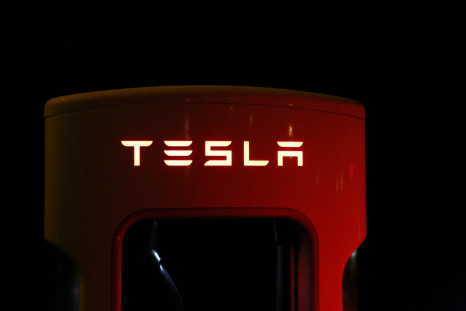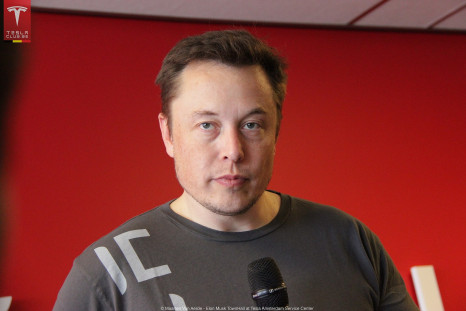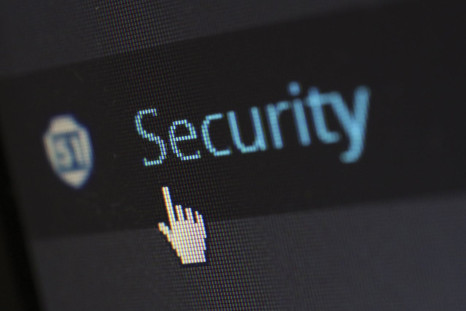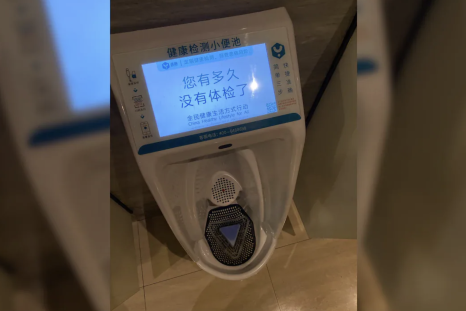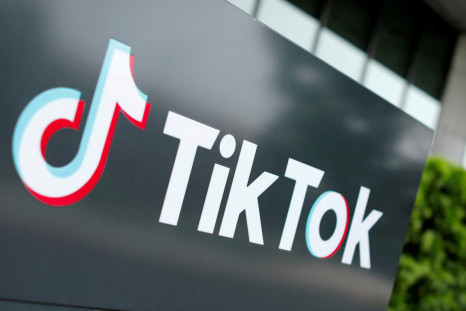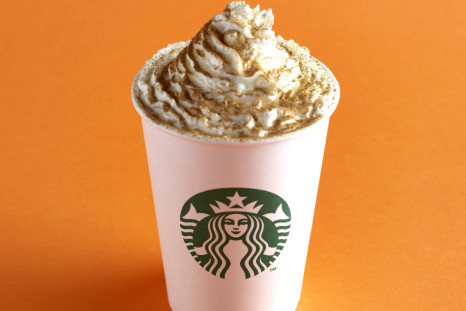China's Singles Ditch Dating Apps For ChatGPT's AI Boyfriend 'Dan'
AI chatbots offer personalised companionship in China and users value constant support and the ability to tailor interactions to their needs.
Vinay Patel Jun 18, 2024
What's Inside This China Factory? Eerie Humanoid Robots! [Video]
A Chinese company creates hyper-realistic humanoids that mimic emotions for healthcare and education, raising questions about ethics and job displacement.
Vinay Patel Jun 12, 2024
'Quit Or Accept Minimum Wage': Chinese Company's Ultimatum To 1000 Autoworkers As EV Sales Drop
A Chinese car factory facing weak sales offered workers a choice: Resign or take minimum wage until business improves. This affects 1,000 employees.
Vinay Patel Jun 07, 2024
US Dismantles 'World's Largest Botnet' Operated By Chinese National Who Hacked 19 Million PCs
Massive botnet infecting millions of computers taken down in international operation. US arrests mastermind behind $5.9B COVID fraud scheme.
Vinay Patel May 31, 2024
Can You Avoid Credit Card Debt If You Move To Another Country?
A Chinese student studying in the US claims to have maxed out credit cards to resist American imperialism.
Vinay Patel May 31, 2024
'Laoqianfeng' Is China's 'Quiet Luxury': Here's How The Ultra Rich Are Redefining Status Symbols
Chinese millennials have created new status symbols and are investing in a new kind of luxury.
Danielle Summer May 29, 2024
Need To Save? Tiktok's 100-Envelope Challenge Can Help You Save $5K in Four Months
While some people are saving thousands, finance experts say that the TikTok trend has left some challengers in an account overdraft.
Danielle Summer May 29, 2024
Billionaire Ray Dalio's Bridgewater Associates Offloads Cisco, HP, and More to Double Stake in Nvidia, Boost 'Magnificent Seven' Holdings
Billionaire Ray Dalio's fund boosts tech holdings to 17% of the total portfolio in Q1 by investing heavily in Nvidia, Alphabet, Apple, Microsoft, Meta, and Amazon.
Niloy Chakrabarti May 24, 2024
China Fines Businesses For Refusing Cash Payments In A Bid To Be More Tourist-Friendly
China's booming cashless payments are a boon for some but a hurdle for tourists. The country is scrambling to bridge the gap as tourism recovers.
Vinay Patel May 23, 2024
Billionaire David Tepper, Who Bet on Failing Banks in the '08 Crisis to Profit By $7 Billion, Massively Diversifies Tech Stake in Q1
Cheap AI-focused China tech stocks and growing speculations of the US tech rally cooling off soon are prompting investors like David Tepper to capitalize on the valuation gap.
Niloy Chakrabarti May 22, 2024
Microsoft Allegedly Willing To Transfer 800 AI Workers From China To US, Ireland Or Australia
Facing tech tensions, Microsoft offered relocation to hundreds of China-based AI and cloud staff, key players in the US-China tech rivalry.
Vinay Patel May 17, 2024
Stressed Out Mom Buys $69K Flat For Herself; Takes A Break From Family Twice A Week
Gong Yan can focus on her own matters when residing at her small apartment in Changzhou, with the change benefiting her mental health.
Ziyad Jamal May 16, 2024
Diploma Devaluation: Overqualified Chinese Graduates Desperate For Jobs Hired For Crematorium Role
A philosophy student that graduated with a master's degree was among the shortlisted applicants for a role in one of Guangzhou's crematoriums.
Ziyad Jamal May 15, 2024
Russian Women Speaking Mandarin, Looking For Chinese Husbands Go Viral - With A Catch
AI videos in China using fake Russian women to praise China & diss Russia are censored. However, national pride in China's power might bring them back.
Vinay Patel May 14, 2024
Former Google CEO Says US Is 'Two or Three Years Ahead' Of China in AI For These Reasons
Ex-Google CEO Schmidt says the U.S. leads China in AI by 2-3 years and urges the country to invest for continued dominance in the tech future.
Vinay Patel May 09, 2024
China Wins Elon Musk's Favour, But India Eyes Global EV Market Share
China leads EV production (key for Tesla), but India has a chance. They're pushing battery production and aim for 13 percent of global demand by 2030.
Vinay Patel May 03, 2024
Chinese Influencer Loses 30M Fans and Is Forced to Apologise for Fake Story About 'Grade 1 Student'
Chinese social media user, Thurman Maoyibei, made up a viral story of a young student losing his study books at a cafe in Paris.
Ziyad Jamal May 01, 2024
Elon's Urgent Trip to China; Asks Help From Official To Boost Tesla With Driver-Assistance Software
Tesla eyes China for the launch of FSD after Musk's visit, partnering with Baidu and clearing data hurdles.
Vinay Patel Apr 29, 2024
Pakistanis Trapped in Cambodia's China-Run Cyber Slave Ring Targeting US
Cyber gangs trick people into slave labour with fake job ads, forced scams, and beatings. It has become a global issue with thousands trapped.
Vinay Patel Apr 25, 2024
Public Hi-Tech Urinals In China Can Now Check If You're Sick For Less Than $3
China unveils high-tech urinals offering instant urine analysis for health markers in public restrooms for under $3.
Vinay Patel Apr 23, 2024
China Has 8.3M People Who Can't Repay Their Debts: Here Are The Shocking Ways They Are Punished
Blacklisted debtors in China may feel trapped in the system as the government can hold their salary to recoup the money they owe.
Niloy Chakrabarti Apr 18, 2024
Is Temu Safe To Buy From or Is Temu a Scam? What You Need To Know
The fast-growing Chinese e-commerce platform known for its low prices is ramping up global expansion despite rising regulatory concerns and consumer complaints.
Niloy Chakrabarti Apr 14, 2024
Financial Advisor Shares 4 Chinese Money Principles That Can Help You Boost Your Savings
After China's gross savings rate was measured at 45.9 per cent, Humphrey Yang shares the Chinese secrets to saving money.
Danielle Summer Apr 06, 2024
In 1939, Former Slaves Rented Their Home to a Chinese Family; Here's What Happened 80 Years Later
With ongoing debates regarding reparations and questions of accountability within the US, the Dong family's decision to give back to the Black community has served as an example.
Danielle Summer Apr 01, 2024
TikTok Executives Perceived Reduced Threat of Imminent Ban with Biden's App Involvement
Despite Joe Biden joining TikTok, the US is advocating for a nationwide ban on the platform.
Vinay Patel Mar 14, 2024
From China to USA: Rumble CEO Offers to Acquire TikTok and Ensure Data Security
As the US considers banning TikTok over security concerns, Rumble has offered to buy the Chinese-owned app, touting data security and free speech protections.
Vinay Patel Mar 13, 2024
What is the Potential Risk of Misinformation and Manipulation in Such a Historic Global Election Year?
There are concerns that disinformation, especially in the form of deep fakes or hyper-realistic media that convincingly portrays real people, could be used by malign actors to manipulate voters and exacerbate social divisions.
Skylar Yoder Mar 08, 2024
Starbucks Launches "Pork Latte" For Chinese Market
Starbucks often launches holiday special drinks to cater to its varied customer base.
Sadhna Yadav Feb 29, 2024
Shein And Temu Are Dominating The Global Air Cargo Industry Despite Climate Crisis
China's e-commerce giants Shein and Temu account for almost 10,000 tonnes of garments being shipped overseas, despite fast-fashion and factory worker controversies.
Danielle Summer Feb 23, 2024
Chinese Fishermen Accused of Poisoning Waters, Coral Reefs With Cyanide
The accusations have been made by the Philippines' Bureau of Fisheries and Aquatic Resources.
Sadhna Yadav Feb 20, 2024
Pages
- PREV
- 3
- 4
- 5
- 6
- 7
- 8
- 9
- 10
- 11
- NEXT

















